Earlier this summer, we caught up with Isabella Torres, Common Ground Class of 2016 — who just graduated Summa Cum Laude with honors from Goucher College. The painting that Isabella and two of her classmates created as part of their senior project was the first piece of artwork hung in our new Springside Building when it opened in spring 2016. Isabella continued to follow these twin passions for art and social justice in college; in her senior year, her contributions to the senior art exhibition won an award from the college. Read her words below!
What stood out from your experience at Goucher?
What helped you be so successful there?
My first year, I was part of the Phoenix program. It was their first year implementing it, as a program for first generation students and students from lower socioeconomic backgrounds. Goucher is a small liberal arts college, and it’s uppity — not as much as some colleges, but still. They noticed that there’s a distinct gap between the first generation low income students, and the students who were coming with all of the possible resources. The gap was insurmountable for some. It was impacting retention rates, the graduation of students from different socioeconomic backgrounds, and recognized they needed to do something to counteract that.
The next year, I applied to be a mentor, and help run the Phoenix program. It was only the second yearand they were still building system. It was enlightening to see higher education as a system, as an institution, as a business. You start to see the underbelly of what goes on in the American education system, and how it affects the people lower on the food chain, the least privileged of people.
I love Common Ground, and they prepared me for all aspects of college, except perhaps the part of education that’s very homogenous, very white, a very different lifestyle. Common Ground was diverse, but it was diverse within a certain socioeconomic lifestyle. I started interacting with people in college, on a very deep level, because I lived there. I noticed this with my brothers, who didn’t live on campus so they weren’t entrenched in the culture of the school. They call it the Goucher bubble.
Some of that culture means a very white, upper middle class lifestyle. I learned a lot about health, fitness, healthy living. Your classmate is criticizing your every meal, asking why you aren’t eating salads at every meal. You ask her how to make it taste good, and she says, “watch.” So there’s something really wonderful about it on the one hand, and there’s always going to be a dark side. People are ignorant, and you don’t know how to deal with that. But you learn, and that’s something that’s very important.
My study abroad experience also stood out — I went to China last summer. I went there right before the outbreak, for three weeks of June. Beijing, Shanghai, Xi’An – the start of the Silk Road, with the terracotta warriors. I knew I wanted to go somewhere completely different from the West — and China has depth of history, of art history. I had already taken silkscreening, which originated in China. I made the experience my own by connecting it to silkscreening, connecting it to education for the arts.
In China, they value the holistic education of the child. They focus on wellness and spirituality, required calligraphy for all students, required arts, required theater for all students. I love that. You can connect what you love to what you learn and connect it to meditation and spirituality, and fall back on that when you are struggling. That’s how China managed to produce such great academic scholars — not just by being rigorous, but by promoting the well-being of the individual, and of the community.
What were the threads that you started at Common Ground, and that you kept weaving at Goucher?
The value for social justice … At Common Ground, that was where it was cultivated, entirely. How do you care about communities of people, how do you care about the world, how to care about yourself through that. Goucher is very social justice forward, compared to other small liberal arts colleges. They require you to study abroad, to have a global perspective. They are one of the only colleges to have a major in peace studies. It’s about the study of social justice, in its entirety.
In my 9th grade year at Common Ground, African Studies was the class that taught me the most about other ways of life, and the rest of the world. The book by Ishmael Beah, A Long Way Gone, was huge for me. I would connect the global perspective it taught me to how I perceived politics at Goucher.
My love for education also started at Common Ground. The inventiveness and flexibility around teaching at Common Ground really stuck with me. At Common Ground, my teachers were not only teachers, but mentors. That started with Mr. Bianchini, who teaches special education … He had a way of working with students that really inspired me so much — connecting with a person as a person, not as a child, not as a head among a row as heads, but as a person who comes with these needs — who could learn in a way that no other person could learn. I admired that.
Common Ground is great, because of the community that it can build. You can be diverse, and still have community, because you learn how to live with each other. It was difficult to see beyond Common Ground, beyond what was expected of me at the time. I had never encountered beautiful houses, beautiful gardens with topiary and all this wealth and riches — so I didn’t think it was real, that it really affected people’s lives. The professional field is incredibly different from what I expected, because CG was so friendly, so personable, so welcoming. You learn afterward there are people you have to respect as a superior, in every way except personal. Then, it becomes hard, because your superiors are acting superior to you as a person, and you realize, we are all people, we are all worth the same.
I think something that I needed to learn when I was at CG, more than anything, was how to turn anger and frustration with the system and society into a loving kindness. That comes into the eastern philosophy, but mostly it comes to: how to learn to fight for justice without hurting yourself. If you hate, and you resent, it hurts you. I needed to hear that. When I was learning about the injustices of the world you get so angry, and you have nowhere to put it, except into the world, as something that’s violent and angry. At Common Ground, I would have loved to know more about peaceful protest, about civil disobedience — how to treat a human being as a human being, to achieve forgiveness before you tackle change. That’s what I’d want Common Ground students to know: The hate you give is also the hate you get.
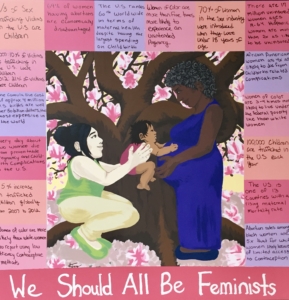
The painting that Isabella and two of her classmates created as part of their senior project still hangs in our Springside Building.
What do you hope to try out or learn about next?
I’m here, and I’m doing the best I can! I love education. I love learning. I am interested in so many things, that I haven’t totally figured out what I am doing. Mostly, I just want to learn about everything. For right now, I’m particularly interested in neuroscience, dialectical behavior theory, how it connects to Buddhism. I was just writing some papers about that, because I was taking health psychology. There’s this huge overlap between Buddhism and health psychology. For something that’s been around for 1,200 years, the Bhuddists had it right — it’s insane!
Not that I regret art, because it connects to everything, especially psychology. Art is a transformation in itself. You perceive it in different ways, depending on where you are and what the context is. I came to perceive art through a gallery, and through art critique, and exhibit competitions, and commercial means. These are means that are still fine arts, and creative — but still inherently judged. It’s very different from how I used to see art at Common Ground, and how I always loved to do it.
It’s about learning to regain that love. We are all creatives — we are all artists in something. If you can read and write and think and breathe, you are doing something wonderful. It’s finding again the natural flow of things of the art, and how it connects to everything else. Art in itself is meditation — it’s the power of the brain.


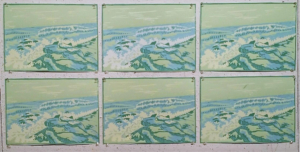
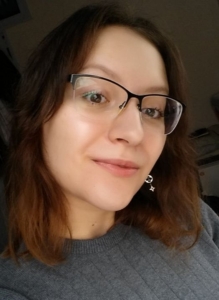
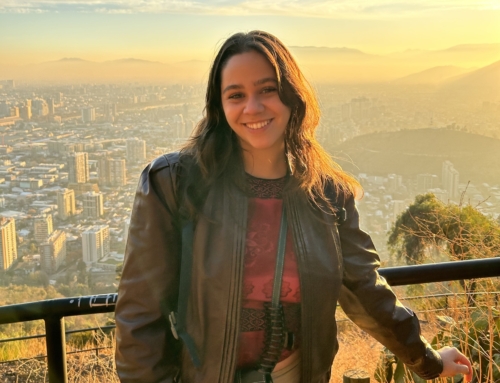
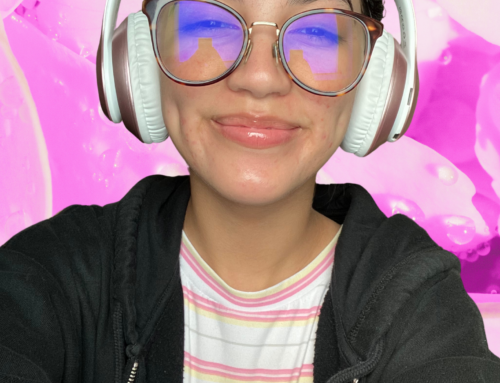
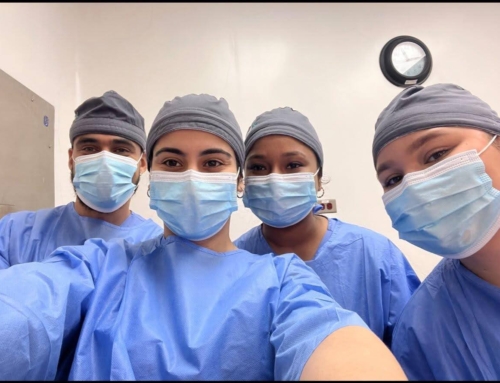
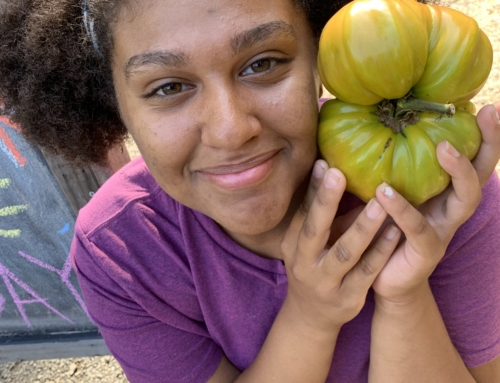
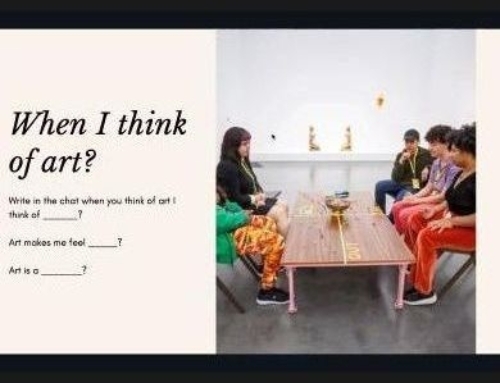
Leave A Comment